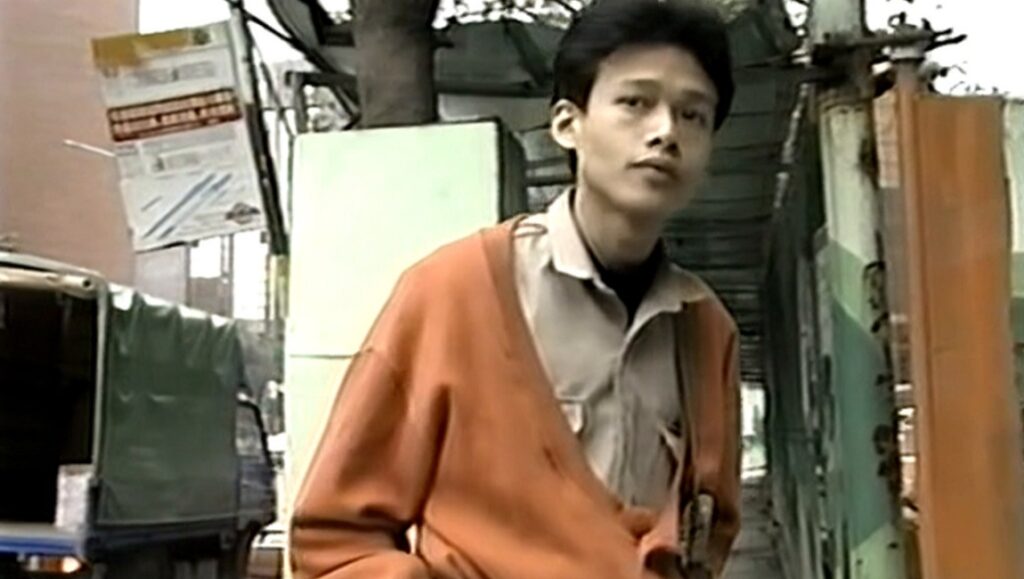It may surprise you that Taiwanese auteur Tsai Ming-Liang’s first feature-length film, Boys, has a quite significant relationship to British social realism. Made in 1991, the film features an unusual, abusive relationship between a boy (Liu Jixin), born into a bourgeois family, and a young man (Lee Kang-Sheng) who bullies him for money to help a hospitalized friend. Getting help from such gurus of Taiwanese cinema as Wu Wen-ching, Tsai here attempts to establish an auteur style of his own — and one can sense his experimental predilections throughout. Boys starts with a montage comprised of shots panning from demolished buildings to skyscrapers, a deliberate contrast that illustrates the uneven development of Taiwan in the 1980s. Following this sequence is a long location shot that features students being dismissed from primary school, and directly greeting the camera.
Getting help from such gurus of Taiwanese cinema as Wu Wen-ching, Tsai here attempts to establish an auteur style of his own — and one can sense his experimental predilections throughout.
Boys goes on to establish an evident concern with the feelings of homosocial bonding that will be woven throughout Tsai’s filmography. A men’s restroom becomes a location of particular significance in the film: it’s where a kid is blackmailed by a young man, and where the same kid’s friend advises him how to resolve the issue. In these scenes, Tsai seems fairly keen on creating an expressionist style with his camera; when the young man forces the kid to give him more money, Tsai employs a chiaroscuro effect, the boys’ faces shrouded in darkness and only observable through dim light from the nearby windows. Boys also marks the first collaboration between Tsai and his muse, live-in partner, and preferred leading man, Lee Kang-sheng. Discovered by Tsai in a video-game arcade, Lee first had difficulty working with the director, as Tsai found his physical movements too slow for the role he’d cast him in: “I regretted [casting him] during those very first days, because it is hard to accept his acting style. He acts in a really slow motion, even for a simple movement like turning his head..since then I have accepted his acting style and worked with him till now.” One gradually becomes aware that the young man in Boys is really only a slight variation on Lee himself, and it’s this blurring of character/actor, first introduced here, that defines these two artists’ dynamic.


Comments are closed.